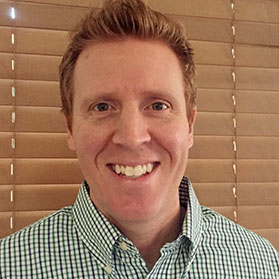By: Greg Douglas, LPC, LMHC
Sounds like a simple question, right? Feeling shame can’t be a healthy thing, most of us feel like crap when shame shows up!
Like most things in life we must avoid the urge to view everything through a black and white lens. Feeling shame doesn’t have to be all bad. So, if feeling shame isn’t all bad when is it good?
The Good
Feeling shame is a normal part of the human experience. Some experts believe that the ability to feel shame is what sets us apart from all other species.
The ‘good’ kind of shame I speak of is called “healthy shame” or “appropriate shame.” This type of shame helps us in several ways. Healthy shame helps us to contain ourselves when we would like to lash out and harm others or make a situation worse. Healthy shame helps us to feel a sense of guilt or remorse when we’ve acted badly. The key here is the word “acted.” Healthy or appropriate shame is much more akin to having guilt.
Healthy shame allows us to remember our humanity and how truly imperfect we really are. Healthy shame can be defined by this statement: “I feel bad because I made a mistake.”
The Bad
Most of us try to avoid feeling shame at all costs. Even if we allow ourselves to feel shame, we have a nanoseconds’ worth of tolerance to remain in the shame position. So, what do we do?
We feel ‘less than’ when we feel shame, so it makes perfect sense that we launch ourselves out of this state by seeking to feel ‘better than.’ We overcorrect from feeling shame to acting grandiose. This is a losing strategy that leads to a lack of willingness to acknowledge our real emotion of shame. When we can’t acknowledge our shame, we act out and cause damage to ourselves and to our relationships.
We refuse to look at ourselves and seek to ‘outsource’ our feelings by doing whatever necessary. In relationships this usually means attacking or blaming our partner.
Unhealthy or “bad shame” can be defined by this statement: “You’re the problem because you made a mistake.”
The Ugly
The most harmful kind of shame is the kind that leaves us feeling like we are less than worthy human beings. This type of shame can best be described as toxic shame.
Toxic shame clouds our ability to see ourselves as worthy individuals and leads to chronic feelings of depression and low self-esteem. Toxic shame makes it impossible for us to connect with anyone else in a healthy way.
Toxic shame is most often passed down to us by our unhealthy family members. Because they felt shameful and never dealt with it, they unknowingly passed it down to us.
Toxic shame can be defined by this statement: “I’m a mistake.”
A Healthier Perspective
Learning to feel Healthy Shame is a crucial part of living a healthy life. When you understand the different ways in which you can feel shame, you gain the ability to regulate your emotions.
Pay close attention to your emotional state. The next time you feel shame, ask yourself which kind of shame it is. If you are launching out of shame into the grandiose position or if you are experiencing toxic shame, please reach out for help.
Learning to experience shame in a healthier way won’t happen on its own and you will need help. If feeling shame has caused you personal discomfort or has impacted your relationship, don’t wait too long to act.
Reaching Out for Help
If someone you know has had their relationship impacted by shame, please share this article with them. If you’d like more information about how to deal with feelings of shame in a healthy way, please call Douglas Counseling at (503) 388-6611 or visit us online at DouglasCounseling.com and set up an initial consultation.

